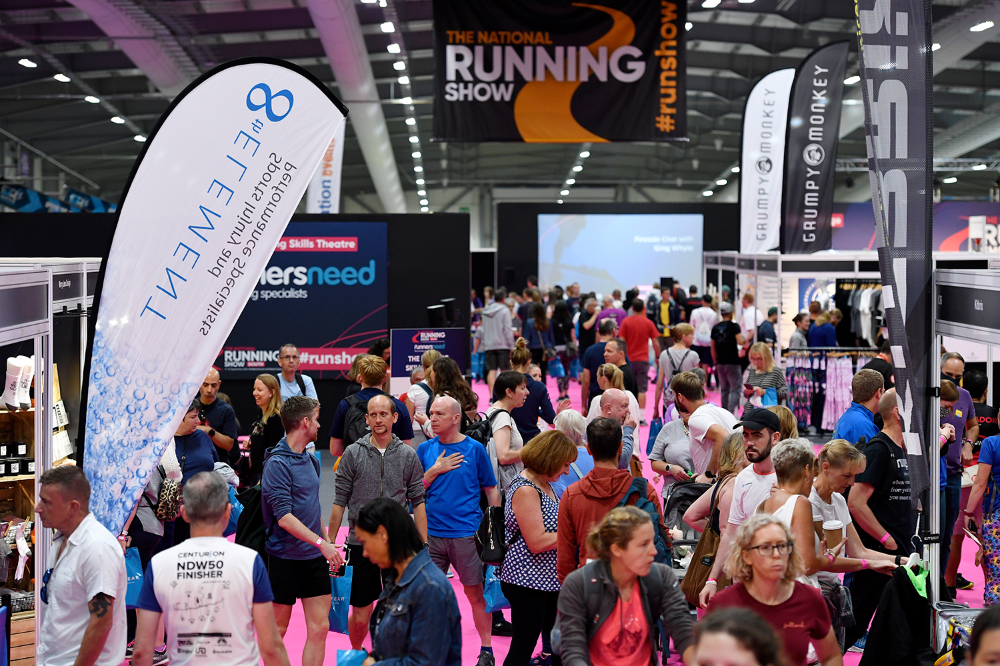Launching Successful Running Shows Is a Marathon, Not a Sprint, According to Raccoon Events CEO Mike Seaman

While some exhibition companies are doubling down on fine-tuning their existing events and waiting for 2022 to re-launch their in-person experiences, some are seeing this challenging period in our industry’s history as the perfect time to debut brand-new trade shows for underserved markets. Case in point: U.K.-based Raccoon Events, which will be kicking off three large-scale running expos for the U.S. consumer market next year— The Run Show USA Boston, Chicago and Los Angeles—modeled after its award-winning National Running Show in the U.K.
TSNN sat down with CEO Mike Seaman to hear why the health and wellbeing-focused consumer show organizer sees a need for new “running shows for runners” in 2022, what challenges the company has had to overcome to do so and how it plans to attract and delight pandemic-weary consumers and turn them into bona fide loyalists.
Why launch three new shows for the U.S. running space in 2022? Is this in response to industry demand?
The difficulties over the last 18 months have created a significant opportunity in the health and wellbeing markets. We know that more people became active during the pandemic, and those people appear to be maintaining that increased activity level, even as things improve and restrictions ease.
Running has experienced phenomenal growth with some territories showing a 40% increase in participation. This, coupled with brand success stories such as Hoka (which delivered a 52% year-over-year increase in Q1 sales) leads us to believe that a running “boom” is coming.
In addition to this, the pandemic has taught us the value of face-to-face. Life on Zoom is not the future, and we believe that there is a significant appetite for businesses that curate experiences and provide human-to-human contact. In my opinion, the experience economy is also set for a “boom,” and together this creates a perfect storm of opportunity for The Run Show USA.
What is your strategy for attracting participants who may not feel comfortable attending in-person events yet?
We don’t have one! Clearly not everyone is comfortable attending live events yet—we completely understand that. We support people’s right to choose, and we wouldn’t want to persuade them to do something they didn’t want to do. However, the running market is huge, and we can’t possibly get every runner to the show—even with three large-scale expos! We have already registered thousands of visitors for The Run Show USA in Boston in January, and we certainly won’t have an issue with lack of visitor appetite to attend. Our main strategy is pretty simple: Create an awesome event that inspires visitors (who are comfortable to attend) to come along and join in the fun!
 What are the biggest challenges of launching a new show in the current climate, and how are you overcoming them?
What are the biggest challenges of launching a new show in the current climate, and how are you overcoming them?
The biggest challenge with any new launch is establishing credibility with customers. Fortunately, we have a strong track record in the U.K. and deep relationships with our customers. If a potential new customer expresses a concern about this, and their U.K. offices call them and tell them how awesome we are, that really is a big help!
Can you share your secret sauce for launching successful shows in the U.K. and the U.S.?
Two ears and one mouth! You need to listen twice as much as you talk—be prepared to take advice and to learn, and with a genuine understanding of the value your customers provide and the insight they offer. Passion is also incredibly important. If you love what you do and believe in what you are saying, then it comes through and can inspire others to take action.
Are you considering expanding your B2C run shows into other overseas markets? If so, when?
Yes, we are evaluating a number of markets at the moment, and I would expect to add new territories in the next few years.
What sets your running shows apart from other competitors in this market?
The average visitor spend at our U.K. [show] is £188 (US $256) per visitor, compared with less than £30 (US $41) at most marathon expos. That isn’t an accident, it is down to a multitude of factors, including the time of year, the retailing environment, the presentation, our marketing approach and our community links. Runners genuinely love our events—we are a part of the community and a date in the calendar, which is just immensely rewarding to hear.
Don’t miss any event-related news: Sign up for our weekly e-newsletter HERE and engage with us on Twitter, Facebook, LinkedIn and Instagram!


Add new comment